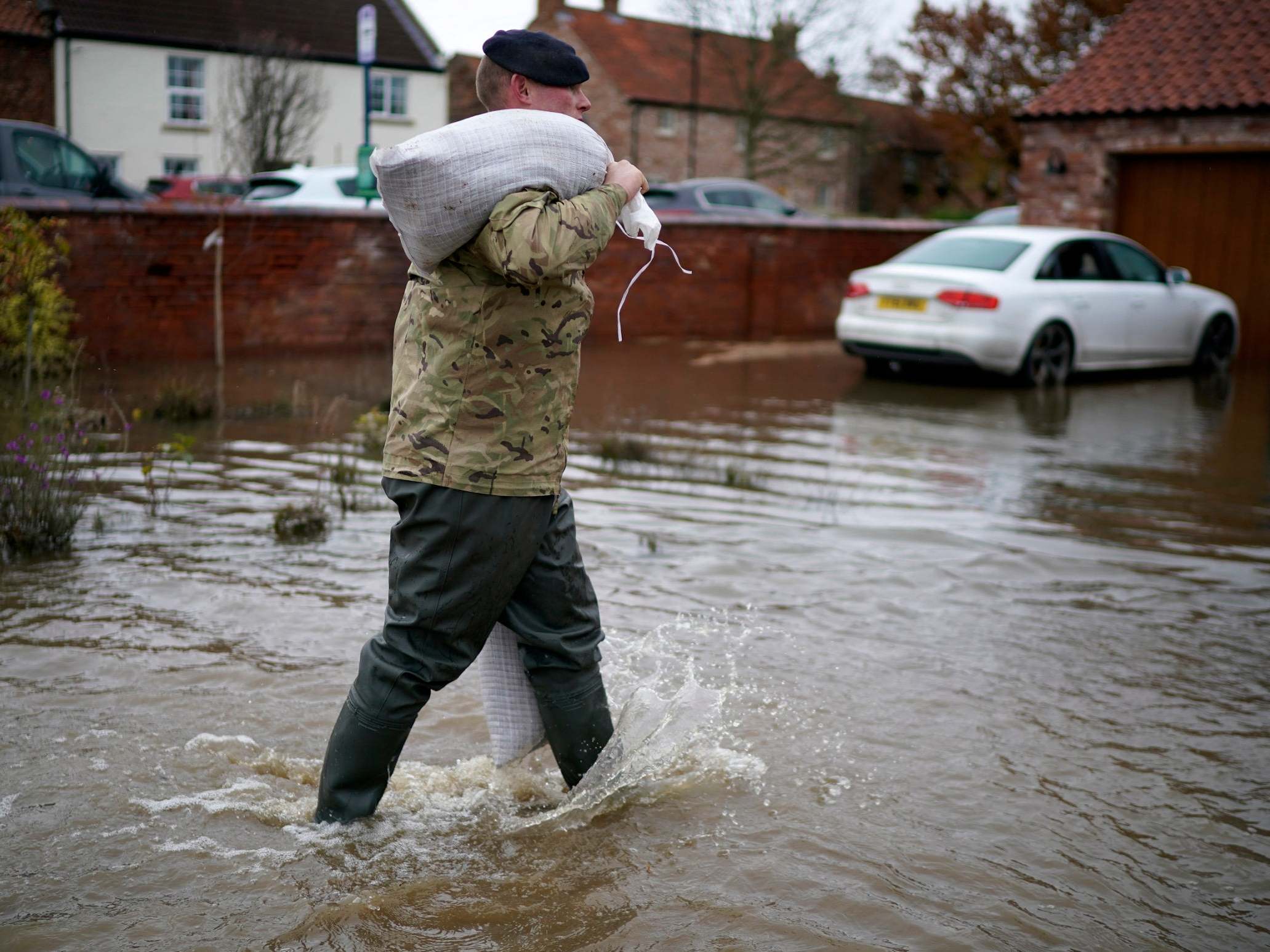UK’s worsening floods will hit the most disadvantaged communities the hardest
As our warming world brings more devastating floods, new official data shows that England’s most disadvantaged communities already face disproportionate risks. Daisy Dunne looks at the evidence


Your support helps us to tell the story
From reproductive rights to climate change to Big Tech, The Independent is on the ground when the story is developing. Whether it's investigating the financials of Elon Musk's pro-Trump PAC or producing our latest documentary, 'The A Word', which shines a light on the American women fighting for reproductive rights, we know how important it is to parse out the facts from the messaging.
At such a critical moment in US history, we need reporters on the ground. Your donation allows us to keep sending journalists to speak to both sides of the story.
The Independent is trusted by Americans across the entire political spectrum. And unlike many other quality news outlets, we choose not to lock Americans out of our reporting and analysis with paywalls. We believe quality journalism should be available to everyone, paid for by those who can afford it.
Your support makes all the difference.The water came up through the flooring and ended up being around thigh-level,” says Pam Webb, a spa owner from Fishlake in Doncaster. “It just happened so quickly. There was just nothing you could do. You’re clambering around trying to save some things but in reality, you just couldn’t.”
Ms Webb’s home and business were devastated by the floods that struck her South Yorkshire village in November 2019. Fishlake is a low-lying village set between two rivers, the Don and Ea Beck. It was struck by rapid flooding on the evening of 8 November after several weeks of heavy rainfall caused the rivers to burst their banks and overflow.
The rapid appearance of the floodwaters took the village largely by surprise. More than half of the 250 homes in the village were affected. Six days after Fishlake flooded, prime minister Boris Johnson visited the village and was met with heckles from residents. “Where’ve you been?” one asked him, as he took a tour of the village to survey the relief operation.
Fishlake is not the only village to see flooding in the past year. In February, Storm Ciara and Dennis hit swathes of the country in quick succession. The heavy rainfall brought by the storms caused severe flooding in areas across the UK, including Cumbria, Wales and Yorkshire.
A report released by the Environment Agency this week shows that, while floods cause devastation everywhere, it is the most disadvantaged communities that bear the brunt of flooding’s impact.
The report’s conclusion reads: “There is an inequality in terms of social deprivation and flood risk exposure from all sources of flooding. In other words, people from areas that are classed as more deprived disproportionately face more flood risk than those in less deprived areas. This is the case when taking into account nearby flood defences.”
These findings are “very worrying” says Professor Hannah Cloke OBE, a hydrologist from the University of Reading.
“A flood event will affect affluent areas and poorer areas in very, very different ways,” she tells The Independent. “This shows we’re not doing a good enough job of making sure those people who can’t bounce back after a flood event are taken care of.”
Disadvantaged people face higher risks from flooding for several reasons, says Professor Cloke. One is that they are more likely to live on flood plains in rural areas, or in densely crowded urban areas with poor water drainage. They are also more likely to live in temporary accommodation, which is often on flood plains or close to the coast.
Once a flood hits, disadvantaged people are also less able to recover, says Professor Cloke. “There is no financial security, everything is gone in the flood. There is nothing left in the bank to draw back on,” she says.
The findings are even more concerning given the impact of the climate crisis on flooding in the UK, she says.
Research from the Met Office shows that the UK’s climate is getting wetter. The amount of rain from extremely wet days has increased by 17 per cent, compared to levels from 1961-90.
There is also growing evidence that human-caused climate change is making individual flood events more likely and more severe, explains Dr Fredi Otto, a leading expert in extreme weather science and associate director of the Environmental Change Institute at the University of Oxford.
“Flooding in the UK is usually caused by extreme rainfall and, in particular in the winter, we do see that climate change is increasing the likelihood and intensity of extreme rainfall events,” she tells The Independent.
A research paper led by Dr Otto found that the heavy rainfall seen during Storm Desmond, which caused flooding in northern England and southern Scotland in 2015, was made around 40 per cent more likely by human-caused climate change.
As the climate crisis raises the risk of flooding, the need to support less advantaged populations is becoming ever more pressing, says Professor Cloke.
“We need to be aware that the risks are shifting with climate change,” she says. “If we have people with the most deprivation, who are the least able to bounce back from a flood event, then we really need to have the support mechanisms in place for those people now.”
In Doncaster, an area experiencing the highest overall levels of deprivation in South Yorkshire, the effects of the flooding in 2019 are still being felt. Some villagers in Fishlake have still not been able to return to their homes, says Ms Webb.
“I’m still feeling the frustration and the anguish,” she says. “But now I’m trying to focus it on what we can do in the future to mitigate the chances of this happening again. If this happens again, and god forbid should it, we must make sure that better plans are in place to deal with it.”
A spokesperson for the Department for Environment, Food and Rural Affairs said: “Flooding devastates lives, livelihoods and communities, and we have made significant progress in preparing the country and are on track to better protect 300,000 homes by March 2021.
“We have completed many schemes that protect properties in deprived areas, and over the last 10 years the Environment Agency estimate that approximately 60,000 homes in these areas have benefited from new defences and a high rate of funding.
“Climate change means we must redouble our efforts, and over the next six years we are investing a record £5.2 billion to build 2,000 new flood and coastal defences which will better protect another 336,000 properties.”
Join our commenting forum
Join thought-provoking conversations, follow other Independent readers and see their replies
Comments